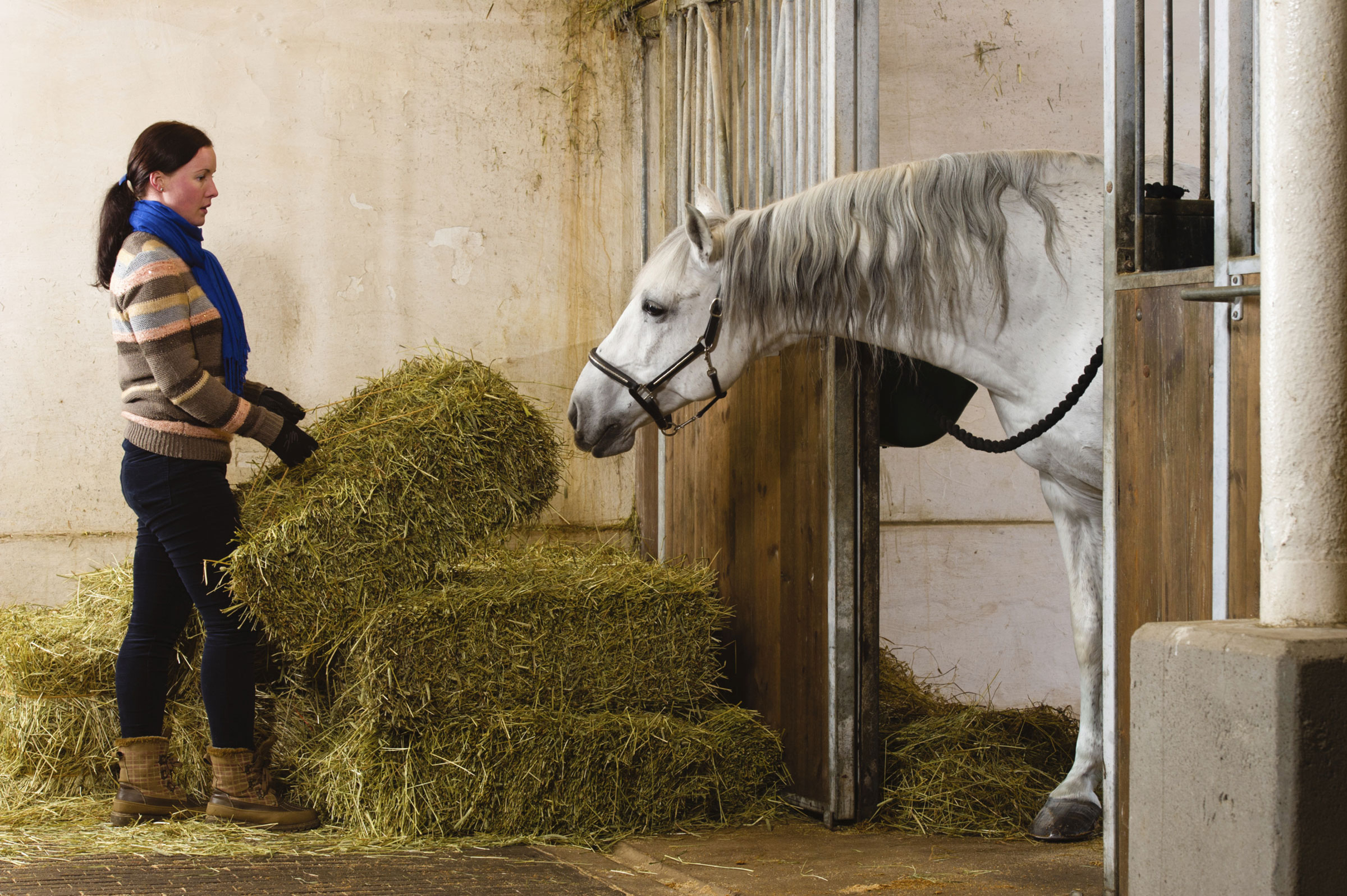
It has been suggested that feeding hay before a grain meal will slow the rate of grain intake. This concept is not well researched; therefore, a study was designed to test the hypothesis that feeding hay before a grain meal would slow intake rate. In addition, type of grain, morning versus afternoon feeding, and adaptation to treatment were studied by Purina Animal Nutrition.
Ten adult Quarter Horse geldings were assigned to one of 5 treatments. Treatments included hay only; hay fed 20 minutes before pelleted feed; hay fed 20 minutes before textured feed; pellet feed and hay fed simultaneously; and textured feed and hay fed simultaneously. Horses were fed at 7:30 am and 2:30 pm. Grains were offered at 4 pounds and hay at 0.5% bodyweight.
Grain intake rates were reduced when hay was fed 20 minutes before the grain meal compared to when the grain and hay meals were fed simultaneously. When hay was fed before grain, grain consumption was 0.3 pounds per minute compared to 0.4 pounds per minute when hay and grain were fed simultaneously. Hay fed 20 minutes before pelleted feed had the slowest rate of grain intake. There were no differences in rate of grain intake for morning versus afternoon feedings. The rate of hay intake was slowest when hay was fed 20 minutes before the textured feed.
This research confirms that grain intake was slower when hay was fed before grain. However, the impact of feeding order on rate of feedstuff passage through the gastrointestinal tract of the horse should also be considered when determining a feeding order.
This research was summarized by: Krishona Martinson, PhD, University of Minnesota. You can read the full research report here.


